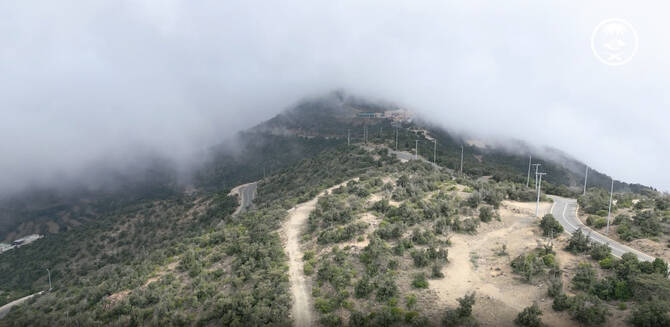RIYADH: It is easy to think of Saudi Arabia as a land dominated by endless dunes and sun-scorched plains. But beyond the sweeping deserts lies an unexpectedly rich tapestry of ecosystems — forests that climb mountains, shade winding valleys, and line the coastal edges of the Red Sea and Arabian Gulf.
While forests cover just 1.1 percent of the Kingdom’s landmass, they play an outsized role in preserving biodiversity, storing carbon, and improving food security. Their ecological importance — and their fragility — has placed them at the heart of Saudi Arabia’s green transformation.

“The forest area in the Kingdom of Saudi Arabia is estimated to 2.7 million hectares, representing 1.1 percent of the Kingdom’s area,” Najeeb Alsubhi, head of the Valley Forests Department at the National Center for Vegetation Cover Development and Combating Desertification, told Arab News.
“This includes mountain forests spread across the southern and southwestern parts of the Kingdom, distinguished by juniper trees, as well as the atam (wild olive) tree, in addition to groups of acacia trees.”
Mountain forests trace the high ridgelines from Taif down to Jazan, while valley forests — dotted with sidr and acacia — stretch through much of the country’s interior. Along the coastlines, clusters of mangroves thrive in tidal wetlands, providing critical habitat and natural coastal defenses.
Despite their modest footprint, these forests are ecological powerhouses. Globally, forests are known to contribute more than 80 percent of biodiversity, regulate climate, limit desertification, and provide essential products from honey to medicinal plants.
In Saudi Arabia, they are also a buffer against desert creep and climate shocks — an increasingly vital role as the Kingdom confronts environmental challenges.

Among the plant species that are found in the Kingdom's valley forests are Acacia and Sidr trees. (NCVC photo)
To protect and expand this natural wealth, Saudi Arabia has launched a forest conservation and rehabilitation drive, led by the NCVC. The center is planting more than 3.5 million trees and working to protect native species by mapping and restoring perennial tree habitats.
Recognizing the growing threat of wildfires, the NCVC has also established dedicated forest and fire monitoring systems, alongside research centers and public education initiatives aimed at long-term forest sustainability.
Among the most significant of these efforts is a new project to assess the health and changes in forest cover across five key regions: Al-Bahah, Jazan, Asir, Najran, and Taif.
DID YOU KNOW?
• Saudi forests are home to 97 species of tree and cover 2.7 million hectares of the Kingdom’s territory.
• Healthy forests contribute more than 80 percent of the biodiversity found in the natural environment.
• Although predominantly desert, Saudi Arabia also has mountain forests, valley forests, and mangroves.
This initiative, part of the National Forest Inventory Program, is a collaboration between the NCVC and the UN Food and Agriculture Organization. The project is designed to support sustainable forest management while meeting international environmental reporting obligations related to biodiversity, climate change, and land use.
Strategies include data collection, identifying key forest locations, and using precision tools like digital hypsometers to measure tree height and forest structure.

Strategies by NCVC to conserve plantation areas in Saudi Arabia included determining confinement points, collecting data, and using a digital hypsometer to measure the height of trees. (NCVC photo)
Together, these efforts reflect a growing awareness of the vital role Saudi Arabia’s forests play — not only as ecological assets but as symbols of renewal in a land long known for its arid extremes.
As the Kingdom pushes ahead with its broader climate and environmental goals, these green sanctuaries, hidden among the peaks and valleys, may prove to be among its most valuable treasures.






























